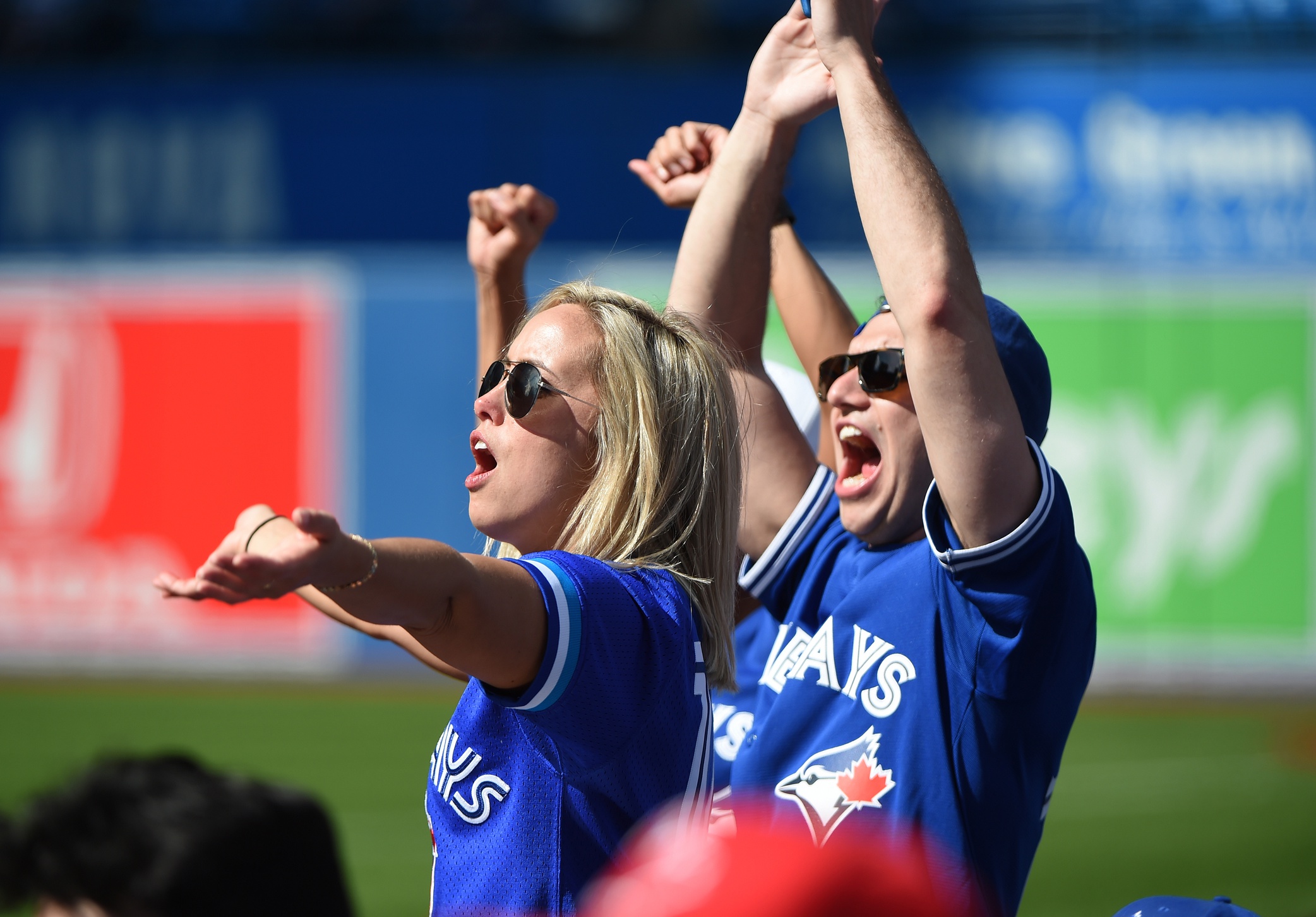Yesterday, the National Post reported some of the findings from an academic study of the Toronto Blue Jays Twitter community conducted by PhD candidate Katie Sveinson.
The elements of Sveinson’s study covered by the National Post were about how people are often driven apart through their discussion of the Blue Jays via Twitter. An idea that runs counter to the conventional wisdom that sport brings people together. Sveinson also speaks of the allegedly divisive and hierarchical nature of fan interactions on Twitter.
I was initially surprised to read about Sveinson’s study, as I personally didn’t find that her findings reflected my own online experiences surrounding the team; Blue Jays Twitter doesn’t feel like a hierarchical, exclusionary place to me. I was also unsure of her methodology (as described in the Post article), as she chose to only use tweets that included team hashtags or the word fan in her sample set. It didn’t feel like an accurate representation of the Blue Jays Twitter I know.
But after reflecting for a minute, the article made me realize that I may be guilty of some of the things I was just suggesting don’t exist about being part of the Blue Jays online community.
I do think it’s important to recognize there may be a difference between one’s own experiences, and the experiences of other Blue Jay fans on Twitter. While I have enjoyed pleasant experiences interacting on Twitter with other Blue Jay fans, (without using team hashtags), that doesn’t mean the majority of other baseball fans do the same. It’s very possible that me and my merry band of Twitter friends are in the minority of people using Blue Jays Twitter. As much as I feel differently, criticizing someone’s methodology with anecdotal experience won’t lead to a more accurate conclusion. If I’m really going to take issue with the study, I think I need to do better than, “that’s not what it’s like for me.” The research may have missed out on representing some of the Twitter community, but I don’t think it means we know that it missed the majority of it.
I also realized that I might be guilty of contributing to the not-so wonderful behaviors that Sveninson’s research discovered. As much as I like to think of myself as an inclusive, positive member of the community, I can sometimes find myself talking down or making fun of tweeters or opinions that I think aren’t correct. Say, when a fan is using team hashtags un-ironically while arguing the Jays need to bunt more often while simultaneously re-hiring Alex Anthopoulos and firing John Gibbons. Whether it’s the value of bunting, the performance of the manager, or clutch hitting, I can sometimes resort to needling, teasing, or a sarcastic sub-tweet instead of engaging when people have opinions that I would deem as incorrect.
They aren’t usually doing anything to raise the discourse, but it’s hard to say I’m not contributing to some type of divisive behavior when I scream right back at them. I fully support the idea that some positions are so ridiculous that they don’t deserve engagement, and once in a while they rear their ugly head, but those are usually reserved for things far more important than small ball. Or almost anything that happens on a baseball field.
I get that there’s negativity and divisiveness all over every social media site. It doesn’t mean that the negative attributes Sveinson identifies with Blue Jays Twitter don’t exist, or that they aren’t significant. Maybe the amount of divisiveness or negativity associated with sports Twitter (or Blue Jays Twitter) is disproportionate to other corners or communities online. It can often feel (again, I want to be VERY careful with anecdotal evidence) that there is more vitriol in discussions about baseball, than say, the online discussions I have about music. Perhaps this would be an interesting research question if it hasn’t been tackled already.
Blue Jays Twitter has been a great place for me to interact with other people interested and invested in the team. My experience has been mostly positive and inclusive, which makes watching the game I love even more enjoyable. I think a lot of the people I follow and interact with would say the same thing. But my experience doesn’t necessarily reflect that experience of others – I make this argument all the time when talking about things more important than baseball. And given that I (and I’m guessing most people) haven’t read Sveinson’s full paper (just the National Post article) I wouldn’t think it’s fair to say her research is so flawed that it should be disregarded. That doesn’t mean it’s perfect, either.
I’m going to take this research as a friendly reminder to be my best self online. And that even a great thing can be better, and not always the exact way I perceive it.
Lead Photo © Dan Hamilton-USA TODAY Sports
